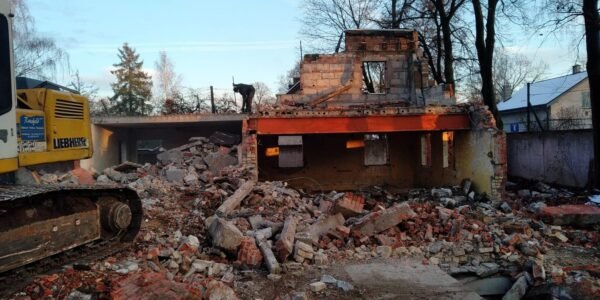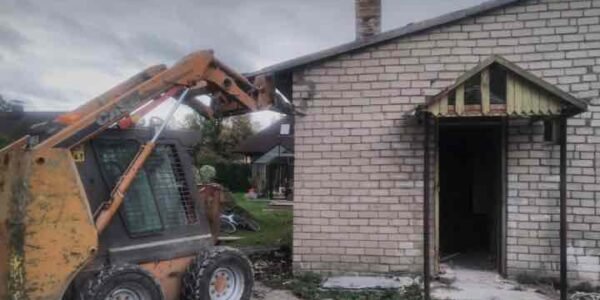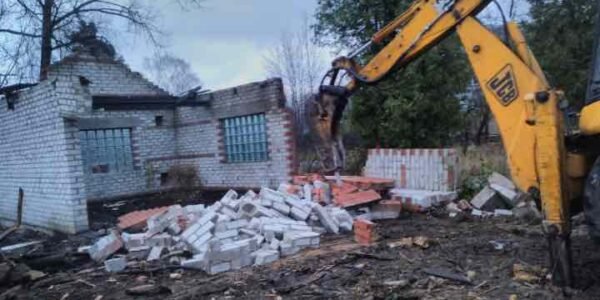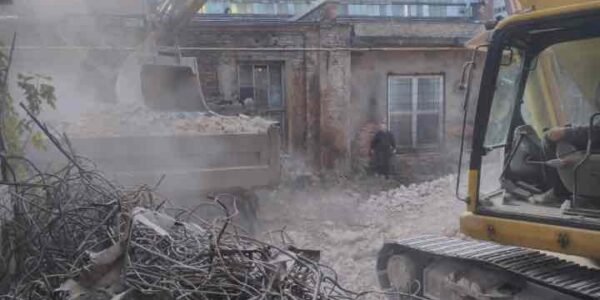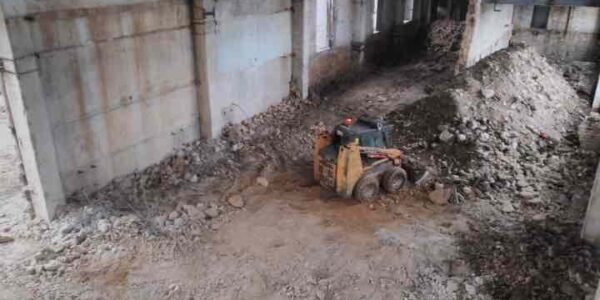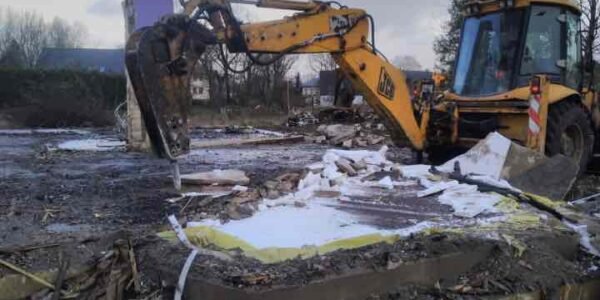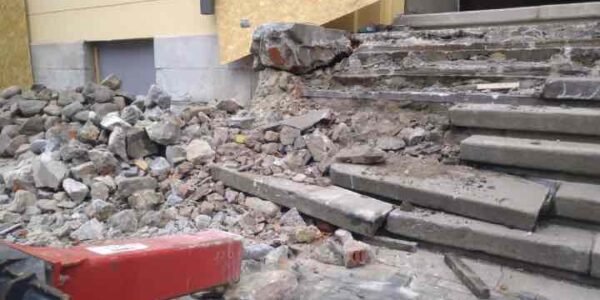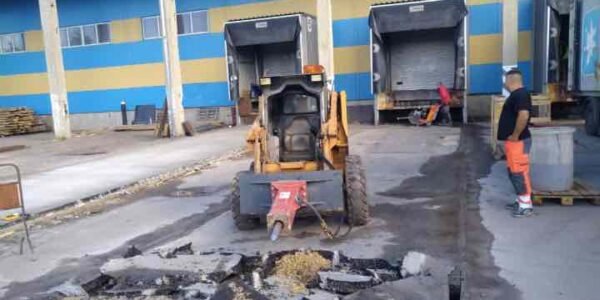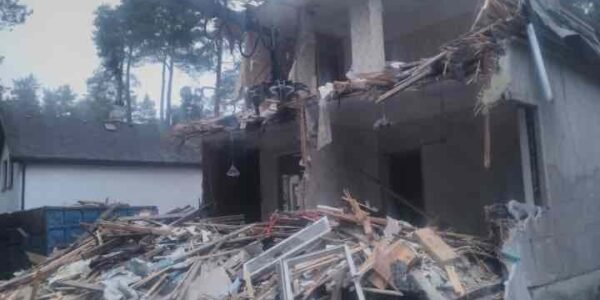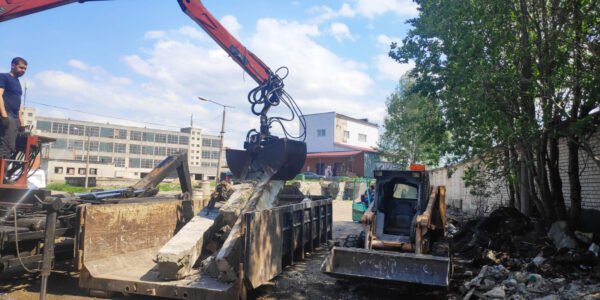Demolition works
Our company, with extensive experience, undertakes demolition works of any complexity and scale. We have all the necessary equipment, tools, and mechanisms, as well as experienced personnel. We work quickly and efficiently. We demolish: wooden structures – wooden houses, extensions, sheds, terraces, attics; reinforced concrete structures – industrial spaces, factories, production facilities, residential spaces, buildings, extensions, foundations, garages, underground structures, hazardous and emergency spaces; metal structures – hangars, frame structures, columns, load-bearing beams, etc. We offer indoor demolition works: ceilings, floors, walls, basements. We carry out the demolition and removal of asbestos-containing structures.
We recycle and dispose of the construction debris generated during demolition.
We approach each client individually, selecting the optimal demolition technology, and carry out the work with high quality and at reasonable prices.
Demolition works involve the removal of construction objects or their parts that have become unnecessary, damaged, or hazardous. Demolition works are necessary to make space for new construction projects, ensure safety and environmental standards, and increase property value.
The types of demolition works depend on the nature, size, and location of the object. The most common types of demolition works are:
- Partial Demolition: The removal of a part of the object while preserving other elements. For example, the demolition of a roof, ceiling, wall, floor, or basement.
- Complete Demolition: The complete removal of the object or its part, including foundations and utility networks. For example, the demolition of houses, apartments, industrial or public buildings, bunkers, or hangars.
- Selective Demolition: The removal of the object or its part, separating and recycling various materials. For example, the demolition of metal, wood, concrete, glass, or plastic.
Choosing a demolition contractor depends on several factors, such as the complexity of the object, timeframe, budget, and quality requirements. To choose the best demolition contractor, consider the following criteria:
- Experience and Competence: The contractor should be a registered construction trader, knowledgeable about demolition regulations, capable of developing a demolition project, and providing qualified personnel and equipment.
- Prices and Offers: The contractor should offer competitive prices, provide detailed and clear contract and invoice documentation, and include all necessary service positions, such as demolition, transportation, cleaning, waste disposal, and liquidation.
- Reviews and Reputation: The contractor should have good reviews and a solid reputation from both previous and current clients, demonstrate high responsibility and reliability, adhere to deadlines and quality standards, cooperate with the client, and resolve any problems or uncertainties.


